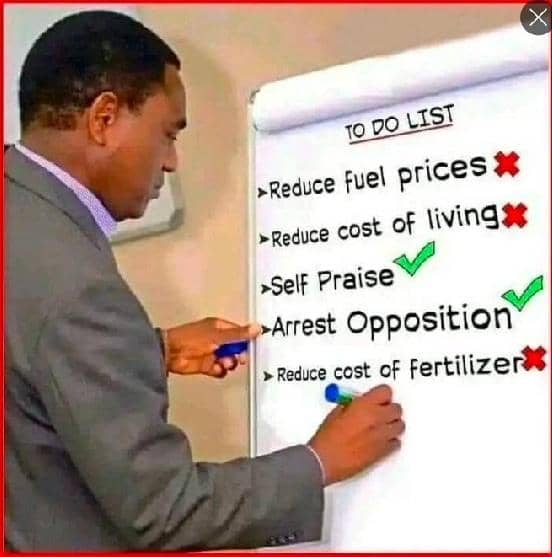
The new dawn government CDF has led to unprecedented improvement in rural road infrastructure, schools, teachers’ houses, Rural Health Centers, Local and Magistrate Courts and many other types of infrastructure development.
By Henry Mtonga.
Lusaka, Sept. 11 – The newly decentralisation Policy that was recently launched by President Hakainde Hichilema in Chongwe District of Lusaka Province is poised on transforming grassroot infrastructure in neglected rural areas.
In a well propounded implementation plan that was released by Government alongside the policy document, Government adopted a bottom up approach in the development structure and administration of the Constituency Development Fund (CDF) in order to empower local people at grassroots level to participate in the developmental agenda of their constituencies.
This approach replaces the archaic and selfish practice of the past where all decisions were made at the Central Government level without due consultation of the local people who had a full understanding of the challenges they were facing in their areas. This approach further strengthens the tenets of good governance and democracy that propagates citizen’s participation, accountability and transparency.
This stride, cannot be overlooked by well-meaning Zambians because historically, the status quo was centred on development that was implemented based on nepotism, regionalism and bias towards the areas along the line of rail. I wonder why our politicians in all successive Governments since independence were adamant on implementing the decentralisation policy despite Zambia being one of the countries that pioneered the formulation of the decentralisation policy document.
Its implementation was characterized with fears of losing power to local structures at District levels. Further, others feared on the pretext of selfishness of losing resources. I guess they just never cared for the plight of the many suffering masses in the remote areas of our country. They did not understand that Zambians in some remote areas were still walking long distances, covering over 80kms, to access primary healthcare services.
I guess they never understood that children were still walking almost 30 kilometers to access primary school education. If it is in the area of justice, people, to date, are still walking over 180 kilometers to have their disputes settled at Local Courts.
I wish they understood that maternal deaths were, and still are, high in rural areas because mothers are still delivering in some rural homes because we are still not meeting the policy of having a healthcare facility in a radius of 5 kilometers as enshrined in the 8th National Development Plan. I’m left to speculate that they never understood the challenges of the many suffering people.
If this policy was considered earlier in the governance structure of our country above partisan interests devoid of corruption and selfishness, Zambia would have been far more developed than it is now. But, people chose to centralize the powers in order to perpetuate corruption through compromised public procurements that were awarded to cronies and selfish interests.
Also Read: Minister of Energy, Eng. Kapala, urges MPs to partner with REA.
Eng. Kapala said from the K1m Constituency Development Fund (CDF) contribution which government directed, it is expected that most if not all public institutions will have access to electricity.
But before we get into the nit grits of discussing the impact of this policy on the grassroots, it is imperative to have an understanding of the concept of decentralization so that we may carry along a layman and common people in the rural societies of our country.
(Ribot 2002) defined the concept of decentralisation as the transfer of authority or functions of an organisation from a higher board of decision making to the lower level. This concept takes places in (3) three distinct types as follows:
◾Deconcentration: This refers to the transfer of authority to lower levels of an organization to make decisions.
◾Delegation: Which refers to the transfer of authority from a senior officer to a junior officer in order to perform certain functions on one’s own.
◾Devolution: Which refers to the transfer of functions from the Central Government to the Local Authorities at the lower level in order to make decisions that favour their own development agenda. Devolution is the type of authority that the Zambian Government through the New dawn Administration is implementing.
This is supported by funds that are disbursed under the Constituency development (CDF) which has been increased twice in the recent past from the meager K1.6m in 2021 to K25.7m in 2022 and later K28m in 2023.
This has not only impacted positively many vulnerable school going children and students through school fees and bursaries for skills development programmes, but has also improved grassroot infrastructure especially in the remote areas of Zambia.
A comparative analysis of some rural constituencies that are implementing CDF projects have shown that more schools, teachers’ houses, Rural Health Centers, Local and Magistrate Courts and many other pieces of infrastructure are being constructed.
In other areas, procurement of school desks for learners and pieces of earth moving equipment such as graders, tippers and tractors are also being procured to help in the areas of opening up feeder roads and the management of waste. It is delighting to see such strides and our hope now is that full fiscal decentralisation will be implemented.
About The Author: Mr. Henry Mtonga, a legal luminary, is an analyst on governance issues. He believes in good governance and civil rights.
If you’ve found this article informative, share it with a friend! Remember to follow our Facebook page to see our political analyses and commentaries.
©2023 Woodpecker’s Digest.
Putting news into perspective









None among the three has the ability to lead, they are all a disaster to this nation, as for Edger Lungu, He shouldn’t even be a topic coz even nature detested him. As for you woodpeckers Editor, you shouldn’t be a pro opposition tilted type of jeornarist. Don’t be too overtaken with only the bad side of HH.
I last had respect for Chishala Kateka when she became instrumental to the fight against bill 10, I thought she had the interest of Zambia at heart, not until I saw her with Edger Lungu in the name of courtesy call. These are the likes of FDD Edith Nawakwi, ” bamushanina bwali”.